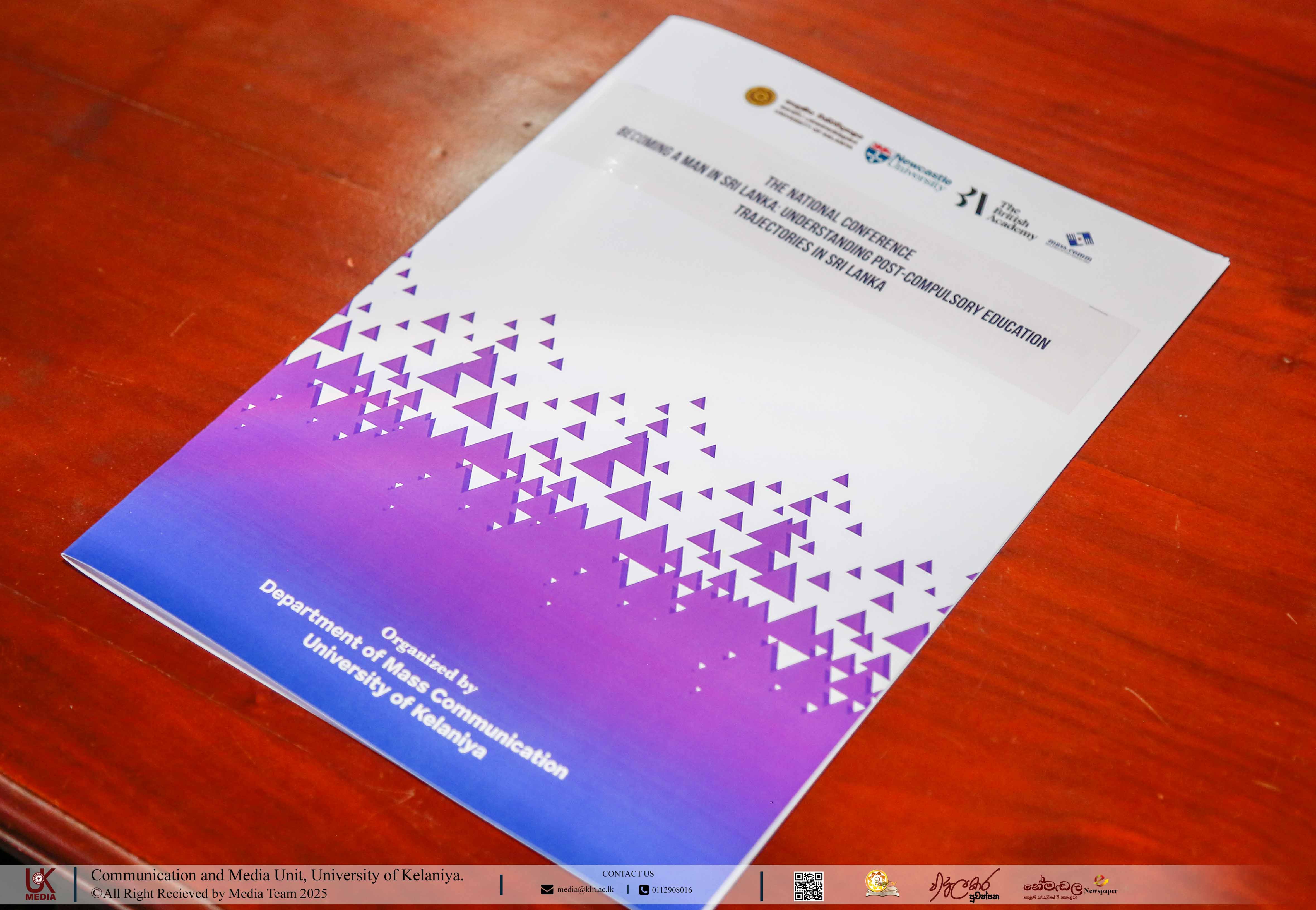National Conference Explores Declining Male Enrolment in Higher Education
- Social Sciences
- Posted On

The national conference “Becoming a Man in Sri Lanka: Understanding Post-Compulsory Education Trajectories in Sri Lanka,” organised by the Department of Mass Communication, University of Kelaniya in collaboration with Newcastle University, UK, was held on March 26, 2025, at the Faculty Board Room, Faculty of Social Sciences, University of Kelaniya.
The conference focused on the declining enrolment of young men in higher education and its broader societal implications.
Chaired by Dr. Achala Abeykoon, Senior Lecturer at the Department of Mass Communication, University of Kelaniya, the event featured insightful speeches delivered by Senior Professor Nilanthi de Silva, Vice-Chancellor of the University of Kelaniya, and Professor M. M. Gunathilake, Dean of the Faculty of Social Sciences. Dr. Chris Haywood, Reader in Critical Masculinity Studies at Newcastle University, UK, graced the event as the keynote speaker, while other guest speakers included Dr. Sujatha Gamage, an Education Policy Expert; Prof. Nirmal Devasiri, a Professor in History; and Dr. Rohan Pethiyagoda, a Biodiversity Scientist.
Dr. Chris Haywood and Dr. Manoj Jinadasa, Senior Lecturer from the Department of Mass Communication, University of Kelaniya, presented their research findings, emphasising a participatory approach to understanding why young men are disengaging from postcompulsory education. Through interactive sessions, audience members contributed their perspectives, identifying key barriers such as lack of encouragement, economic constraints, a perception that university education is a waste of time, and the attraction of vocational training. The study also explored masculinity narratives, addressing whether young men are deterred by an "over-feminised" education system or societal expectations of masculinity.
The discussion expanded to policy implications with insights from Dr. Sujata Gamage, a policy analyst. She stressed the importance of small but impactful policy changes, suggesting that vocational training should be integrated into all schools to create more diverse educational pathways. She also pointed out that while gender-neutral policies exist, the real challenge lies in addressing deeply ingrained societal perceptions of education and employment.
Professor Nirmal Dewasiri provided a historical perspective on education in Sri Lanka, tracing its evolution from independence to the present day. He highlighted the shift in social expectations, labour market changes, and structural inequalities that have contributed to the declining interest of young men in university education. The growing reliance on tuition classes, disparities between urban and rural education systems, and limited job opportunities for graduates were among the key factors discussed.
Renowned biodiversity scientist Rohan Pethiyagoda explored cognitive differences between boys and girls, noting that globally, boys tend to underperform in school while excelling in certain specialised fields. He questioned whether schools are over-feminized and whether alternative educational structures could better support boys’ learning patterns.
The findings from the research were presented not only to policymakers but also to the data contributors, ensuring a holistic discussion that incorporated both research insights and lived experiences. As a conclusion to this study, a comprehensive report will be compiled, providing policy recommendations and potential amendments to address the challenges identified in the research.
The conference concluded with a panel discussion led by Dr. Chris Haywood and Dr. Manoj Jinadasa, summarising key insights and opening avenues for further research.
Additionally, the event was also attended by distinguished academics, policymakers, and researchers, including Professor Sunanda Madduma Bandara, former Vice-Chancellor of the University of Kelaniya; Senior Professor Sudath R. D. Kalingamudali, Dean of the Faculty of Science; Senior Lecturer Wijayananda Rupasinghe, Head of the Department of Mass Communication along with the heads of the other departments of the university; academic staff members; and students of the Department of Mass Communication.


